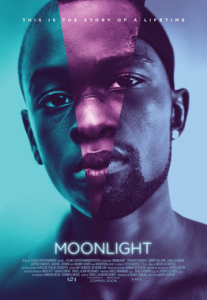The royal we—who knew it actually had a royal history? I had only heard it used in reference to couples who, upon coupling, start using “we” instead of “I” when referring to themselves. Suddenly, “I saw the movie” becomes “We saw the movie,” “I love museums” becomes “We love museums,” and so on. However, as it turns out, the royal we actually has monarchical origins. Originally, this phenomenon referred to the switching of “we” for “I’ by a monarch or person in power. According to Robert Hodge in Literature as Discourse, the use of the royal we can both signify one’s power and the transcendence of one’s own individuality.
In my opinion, this use of “we” can be manipulative. It pulls in other people who may or may not agree with the statement. Maybe someone’s partner doesn’t actually love museums or maybe a member of a society does not agree with a monarch’s actions, but they are implicated nonetheless. From now on, when I refer to the royal we I am referring to this very action—the use of “we” to pull others into and implicate them in another individual’s experience or opinion.
This “we” pops up in cultural criticism. Both Hilton Als in “‘Moonlight’ Undoes our Expectations” and Clive James in “Thrones of Blood” invoke this powerful and transcendent we. However, they each do so in very different terms to, I will argue, very different effects. Als uses “we” sparingly and startlingly, while James uses we as a workhorse pronoun, popping it into sentences time and again.
From afar, these two pieces share many similarities. Both of these pieces examine video works—Als focuses on the movie “Moonlight” and James critiques the television series “Game of Thrones.” Each critic explicitly incorporates their individual stories and perspective. Both works also like the works they are reviewing, ultimately putting them forth as worthy of the reader’s time.
And yet, their use of a single pronoun sets them apart.
In ‘Moonlight’ Undoes our Expectations,” Als takes the viewer through “Moonlight”’s exploration of black queerness, which taps into Als own experiences and also, in Als’s own words, “avoid[s] the overblown cliches so often used to represent black American life in film.” From beginning to end, Als guides us through the plot of the movie, peppering in “zoom outs” that incorporate context (like the director Barry Jenkin’s possible cinema influences), audience reactions to the film (like when utterance of “faggot” caused the audience to freeze), and personal information (like “every queer kid’s revenge fantasy”). Als manages to tell the story of “Moonlight” as a film that, on the surface, traces the evolution of a young queer black man, but, going deeper, does something radically new. It’s honest—Als shows us this.
Within Als’s sea of prose, “we” pops up sparingly. And, when it does, it is shocking. It reminds me of the first time Frank Underwood looks the viewer in the eye in “House of Cards,” implicating us in the world of Underwood, when Fleabag winks at the viewer in “Fleabag,” pulling us into a deceptively amiable friendship, or when Elliot asks if we can see what he is seeing in “Mr. Robot.” When Als writes it for the first time, it caught me off guard. In the middle of a sentence, he sneaks it in: “…we can’t help thinking…” It stopped me in my tracks—he sees me? He is welcoming me into his experience? It was shocking, yet warm. It asked me to take part. And later, when he says “…we wince…” it was like we are sitting in the screening room together. I could feel the wince, the cascading tightening sensation rolling from my eyes to my toes, as if someone had just poured ice water over my head.
Als uses the we, not coercively, but as a way to welcome the reader to sit beside him in the theater. He does not tell me what my judgments are, but what experience the movie offers.
I believe James thinks he is offering a similar gesture with his use of we. I should disclose, that unlike “Moonlight,” I have seen the work that James reviews. I am a former “Game of Thrones” enthusiast who has since grown thoroughly weary and, at times, incredibly angry with the show. I assume that this is part of the reason why James’s review irks me so much. And yet, his use of “we” keeps me from being even just pleasantly indifferent to the article.
His lengthy recap of “Game of Thrones” begins from a very touching place. James has leukemia, which has left him without “a chance,” but also without “an end date, either.” This illness has left him with downtime during which he, and sometimes he and his daughter, watch television series. It is such a touching way to frame the piece that it leaves me feeling guilty for not liking the article.
From afar, “Thrones of Blood” walks us through the series, gives us in depth introductions to several characters, traces plotlines, pinpoints artistic choices, and relates the series to a broader cinematic tradition. James uses his initial reluctance to watch the show as a way into the series. It’s clear that James then wrestles with his love of the show because he must walk us through every facet of his experience. James attempts to do too much in this article, it’s an exhaustive autopsy of the show, not a meaningful snapshot of it.
Throughout his tome, James implicates the reader time and again through the royal we and “us.” For instance, his reference to how “we click on Play All” (an option I’ve never heard of as I’m more accustomed to “Play Next” after each episode, but this a superficial infraction) trips me up, but not for long. Later, when he writes, “We felt shock when Ned Stark was decapitated, and when Tywin Lannister was killed,” I wholeheartedly agreed. I remember the swift head jerk and eye-widening these moments caused me. However, it is the barrage the sheer quantity of other we’s in the article, like “we, too” would make similar acting choices as Kit Harington, we depend on Ned Stark, “we” could not stop watching the show (an implication I strongly disagree with), “the dramatis personae contain plenty of characters we wouldn’t have minded seeing the back of,” and, in a twist of structure, “Tyrion Lannister is us,” that get exhausting.
Now, someone who loves “Game of Thrones” and strongly identifies with Tyrion Lannister may find great solace in James’s review. I, however, did not. Through his use of we and us, James implied that his observations and his opinions of the show were somehow mine too. In a show that struggles with gender, James assumes that his experience of watching a bevy of naked women was the same as my own. (After having watched the show with several men and women, I can say for certain that this is in no way guaranteed.) James’s use of we does not invite me to an experience like Als’s does, but tells me that an experience I do not recognize is my own. As an ardent contrarian, I cannot help but pull away.
Perhaps, this juxtaposition is entirely dependent on the fact that I do not like “Game of Thrones” and have not seen “Moonlight.” I am reluctant to concede this point entirely, however. Instead, I think that the fact I have seen “Game of Thrones” gives me insight into the foibles of the royal we. When it is invoked so many times, I pull back—that’s not what I think or see or feel.
When used sparingly, however, I welcomed Als use of “we” because it invited me to take a seat at the movie theater and imagine what viewing the movie could be like. Even if I had seen the movie, I think that Als’s review would maintain its friendliness by not assuming, time and again, that we have the same conclusions about the film. Again, Als does not tell me what my judgements would be, but rather what my experience could be. In comparison, James implicates me, the reader, in his own conclusions.
It seems that in both television shows and cultural criticism the use of a transcendent “we”—a “we” that forcibly implicates the viewer—is cropping up. It can be exciting to watch the fourth wall crumble and to feel welcomed into a character’s or writer’s experience. But this strategy must be used sparingly. Just as Frank Underwood does not turn to the camera after every major plot point nor should the critic call the viewer out after every observation. Pulling the reader into an experience repeatedly can get exhausting; there needs to be a balance between surrender and activation. I say, let me watch, let me wade into the critique a bit, let me find my footing in the universe you are describing, and then extend a hand asking me to sink a bit deeper. The power of the royal we demands respect, it is potent and, therefore, should be used sparingly.
The royal we brings up crucial questions in the field of criticism: how can critics draw the reader in without speaking for them? How can critics speak with conviction, but still remain aware that their opinion is not the end-all-be-all? And, finally, is there even room for these questions in criticism? Critics are not monarchs, nor are they our romantic partners. In the end, the royal we leaves me wondering: how can we define the relationship between critic and reader?



2,126 Comments
You need to take part in a contest personally of the most effective blogs over the internet. I’m going to suggest this web site! acim teachers
I am glad for writing to make you understand of the beneficial discovery my wife’s princess encountered checking your web site. She realized some details, including how it is like to possess a marvelous giving spirit to have the mediocre ones clearly gain knowledge of a number of tricky subject matter. You truly exceeded people’s desires. Thanks for coming up with the beneficial, trustworthy, informative and as well as easy tips on the topic to Evelyn. a course in miracles teacher
This is the correct weblog for everyone who is would like to learn about this topic. You are aware of much its almost challenging to argue along with you (not that I personally would want…HaHa). You certainly put a different spin on a topic thats been revealed for several years. Fantastic stuff, just great! a course in miracles teachers
I’m not that much of a online reader to be honest but your sites really nice, keep it up! I’ll go ahead and bookmark your site to come back later. Many thanks acim teacher
Hey there! Someone in my Facebook group shared this website with us so I came to check it out. I’m definitely enjoying the information. I’m book-marking and will be tweeting this to my followers! Superb blog and wonderful design. acim teachers
Hi there, You have performed a great job. I will certainly digg it and in my opinion recommend to my friends. I am confident they will be benefited from this site. a course in miracles teacher
I went over this website and I conceive you have a lot of fantastic information, saved to my bookmarks (:. a course in miracles teachers
Is this a new post? i ask because i think i read the same article a month ago on hubpages. panen303
The only place you’ll find success before work is in the dictionary panen303
FCDO travel advice for France. Includes safety and security, insurance, entry requirements and legal differences. https://cutt.ly/3ezP7Txg
I admire your ability to distill complex ideas into clear and concise prose.
keno minh chinh
I really appreciate how in-depth analysis you provide in each article. Not many blogs are able to provide content with this kind of depth, and I feel very lucky to have been posted. Keep up the good work because your writing really influences the way I see the world. https://bastimentosalive.com/
There is something so calming about reading the articles on this blog. Although the topics are sometimes heavy, the way they are presented clearly and empathetically makes them easy to understand. This blog has really helped me see things more clearly and more openly. https://bestservice141.com/
I feel like I’m having a discussion with a very intelligent friend every time I read an article here. You always manage to explain complex topics in a simple yet profound way. I really appreciate your efforts in providing quality content. https://shotsgoal.com/
Your blog is wonderfully informative and intriguing. Experience effortless global commerce on our B2B wholesale marketplace, dedicated to bridging international gaps and now featuring essential products from ‘Water Bottle Manufacturers
I just had to share how thrilled I am after reading this! 🌟 With my recent engagement, I’m all about treating myself, and discovering SEVlaser has been a fantastic surprise. It’s exciting to see such positive experiences shared here. I reserved some time for myself as a gift and couldn’t be happier with the service. If you’re curious, check out what others are saying and book your spot at Laser Hair Removal in Philadelphia. 🎉
Having recently celebrated my engagement, I was thrilled to discover SEVlaser through a friend’s recommendation. I’ve been so pleased with their exceptional service and the transformative results! Reserving time as a special gift was an exciting touch. Reading other glowing comments here only confirmed my choice. If you’re considering it, do check out Laser Hair Removal in Chicago – you won’t be disappointed! Laser Hair Removal in Chicago